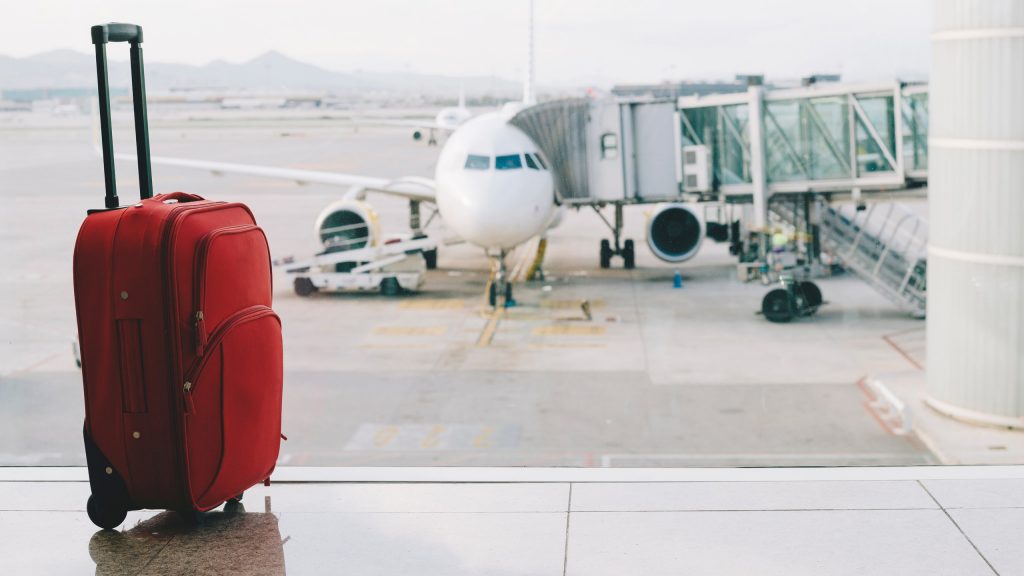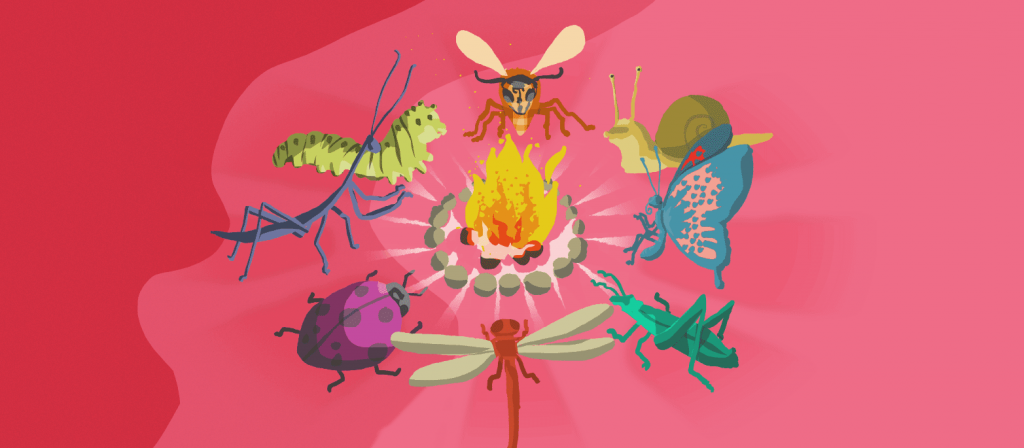
The lost suitcase – the sad reality of customer experience evolution
According to Wikipedia, the term, ‘seven year itch’ can be described as follows:
The seven-year itch is a psychological term that suggests that happiness in a relationship declines after around year seven of a marriage. The phrase originated as a name for irritating and contagious skin complaints of a long duration. Examples of reference may have included STD outbreaks that are known to significantly decrease in frequency after seven years, or mites that live under the skin (scabies) and cause severe itching that is hard to get rid of. Later on in the 19th and early 20th centuries it was viewed as an expression of imagined appropriate punishment for antisocial behavior, or as a simile for a situation with little hope in relief.
The phrase has since expanded to indicate cycles of dissatisfaction not only in interpersonal relationships but in any situation such as working a full-time job or buying a house, where a decrease in happiness and satisfaction is often seen over long periods of time.
Please do not panic!!! My first blog post of 2019 is not going to be a long, drawn out diatribe about the challenges of long-term relationships! However, I do want to draw your attention to the second paragraph in the Wikipedia definition. In 2018, the Customer Experience Professionals Association (CXPA) celebrated its 7th birthday. In 2011, the creation of the CXPA saw the competencies and capabilities practiced by those working in the field of customer experience as a profession for the first time. On the 12th of February 2012, coincidentally, I will celebrate my 7th anniversary as an independent customer experience specialist.
As we start another calendar year, many professionals and organisations around the world will also be celebrating/recognising/commiserating/ignoring (delete as appropriate) the fact that they have also been ‘practising’ customer experience for at least seven years. Whilst there are a myriad of positive thoughts that connect to this vitally important period in the evolution of customer experience as a profession, sadly, the reality of being a customer in 2019 may not be wildly different to being a customer in 2011.
It may appear to be a rather downbeat way to start my 2019 commentary – yet those who know me, know that I can only work in a world of reality – not fiction. Even though most organisations on the planet have created some form of rhetoric around the importance of customer experience (CX), in practice, far too few have actually found a way to actually EMBED a way of managing it into the way they work. In an increasingly competitive and economically fragile world, where the ability to focus is a challenge in itself, there is a fear that I and other commentators have, that symptoms of the ‘seven year itch’ may come in to play around the subject of CX – sooner rather than later.
The fear I speak of is the fear of failure. Despite a plethora of research having been created during this seven-year period proving, beyond doubt, the positive commercial effect of customer centric strategies, the failure by many to effectively manage the end to end customer journey continuously, will lead to some (not all) giving up on customer experience altogether. I am very hopeful that this will not be the case – but leaders who obsess with short-term thinking, are very likely to disbelieve the benefits of a focused approach on CX and change direction.
At this point, I shall stop theorising and share some examples with you – examples that demonstrate that whilst we have been ‘talking’ about customer experience for seven years, sustainable, transformational change is still, for most, a distant aspiration:
KLM Royal Dutch Airlines

I am (or have been) a fan of KLM for many years. I believe that they DO have a genuine desire to deliver customer experiences that their customers will remember for the right reasons. On their corporate website, they back that up with the following statement:
From the core belief that our KLM people are our brand, we believe that we can make a difference by creating memorable experiences for our customers. This is in our DNA. Our genuine attention to our customers makes them feel recognized, at ease, comfortable and touched.
If you have not flown with KLM in recent times, I can confirm that much of this statement is true. Flying with KLM today, feels like it used to be flying with British Airways seven years ago! Good, attentive service from cabin crew; acceptable in flight meals and snacks included in the cost of your ticket; clean, and well maintained aircraft. KLM have chosen to maintain the inflight experience as a premium one, whilst many of their competitors (British Airways included) have chosen to ‘cut costs’ in line with competition from low-cost carriers.
KLM have also taken their customer experience credentials even further. For example, on all KLM flights, the pilot now introduces him/herself to passengers from the front of the aircraft – not from the safety of their cockpit, but in person, in full view of the passengers. On one flight I took with KLM last year, the flight was delayed, so not only did the pilot explain this in person at the front of the aircraft, he also walked up and down the aisle to answer questions from concerned passengers. I was very impressed.
However, whilst KLM are getting many things right, they, like many, are still failing to demonstrate the effective adoption of an understanding of the importance of managing the end to end customer journey. KLM’s focus on CX appears to be almost entirely on the aircraft itself – yet what they seem to have ignored, is what happens at other stages of the customer journey.
In 2018, I flew 127 times. Although none of the 127 flights were particularly memorable (a reality that I may discuss in a future blog post), only twice did the airline I flew with completely fail to meet the most basic of expectations – the delivery of my luggage. Which airline(s) were the guilty party? You guessed it – KLM. On both occasions I flew with KLM in 2018, they failed to deliver my luggage to my destination. The experience of trying to retrieve my luggage was HORRENDOUS! On the first occasion it took three days and multiple telephone calls. On the second occasion it took two days. In both instances, the customer journey was complicated, devoid of empathy and hugely inconvenient.
I have tried to feedback my dissatisfaction to KLM to no avail – in fact, the first time I did so on Twitter, they responded by sending me a Net Promoter Survey!! The wording in one of their tweets to me (shown in the image at the beginning of this section), demonstrates just how far off the mark the intent of the statement on their corporate website is from the reality.
Quite frankly KLM, I could not care less if I never saw a pilot in the passenger cabin again – just deliver my luggage!! For now, to be safe, I will fly with other airlines who can consistently deliver the basics in the end to end customer journey.
Prezzo

Prezzo, a UK chain of Italian themed restaurants, state the following on their website:
Milan. The city from which we’ve always drawn our inspiration. The city of boundless energy and effortless style. Always changing, always leading and never following. No surprise then that we’d grown restless recently. Time to present to you the bold new Prezzo.
The Milanese spirit runs through us like an Aperol Spritz. It shows in everything we do. From our simply delicious Italian food to a spontaneous act of generosity, we strive to share with you the reinvigorated flavour, flair and warmth of Milan.
Expect twists on classics, touches of elegance and, of course, more than a little indulgence. Finished the 9-5? Then meet the 5-9 with a cold spritz and a nibble. Worked up an appetite? Try our Tagliatelle Verdi Gamberoni or Roasted Salmon. Above all, enjoy great company and genuine hospitality. It’s in our heart, our food, our drinks, & our style.
Sounds great. Yet actions speak so much louder than words. Especially true in the case of my daughter and three of her friends when they visited Prezzo at Cheshire Oaks last week. Four, well dressed and well behaved fourteen year olds, were refused a table at Prezzo. Why? Because they were ‘under 18 and not accompanied by an adult’. When they queried this statement from a rather brusque member of staff, her response was – ‘that is our policy’. Bemused, the girls left – never to return again. Not only that, but neither we, nor any of the other parents will darken their door either.
This is a chain of restaurants that has intentionally ‘reinvented’ itself, having struggled financially in recent times. Only a year ago, Prezzo had to announce the closure of 100 restaurants! Maybe their recovery has been so dramatic, they can quite feasibly turn away custom!
Sadly, the treatment of my daughter and her friends serves as a perfect demonstration of the sad reality of the evolution of customer experience. Even those whose very existence is under threat are still failing to understand the importance of managing the end to end customer journey.
Waitrose and Partners

Waitrose and Partners (the ‘new’ name for Waitrose – part of the John Lewis Partnership), have been a shining example of customer centricity for decades. In fact, both Waitrose and John Lewis are among the most commonly cited examples of the ‘consistently good’ application of customer experience in the UK. They state the following on their corporate website:
Partners make the difference. At Waitrose & Partners, we’re more than employees – we’re owners. That’s why we’re all called Partners. And that’s why we go above and beyond to share our knowledge and passion for quality food with the people who matter most – you, our customers. Because for us, it’s personal.
Statements that few would disagree with. Sadly, after the experience my parents-in-law had at Waitrose in Chester last week, they are statements that may well serve to be disproved!
It is not uncommon for my father-in-law, Ronald, to relax and enjoy a coffee and a cake in the Waitrose café, whilst waiting for his wife, Elizabeth, to complete the weekly shop. Last week, instead of buying his cake inside the café, he bought it in the Waitrose store instead, as he had the intention of waiting for Elizabeth outside. However, having purchased his cake, Ronald decided it was a bit too chilly outside – he therefore sat in the café to eat his cake and read the paper instead.
To cut a long story short, Ronald was ‘ejected’ from the café. The rationale? Ronald did not buy his cake ‘inside the café’, so was not permitted to sit there. The fact he had purchased his cake in the very same Waitrose store was deemed irrelevant. A heated conversation with the ‘partners’ did nothing to change their minds. Ronald and Elizabeth left with their tails between their legs.
Not only were they humiliated by the experience, they have decided they will NEVER visit a Waitrose store again – and knowing my in-laws, they are deadly serious. Their awful experience is a further demonstration of the sad reality of the evolution of customer experience. Even those who have excelled in delivering great experiences for decades, are struggling to apply the consistent management of the customer journey over time. No one has ever ‘made it’ when it comes to the subject of customer experience – the art of CX is applying the science as a never-ending, continuous cycle of activity.
All three of these stories – all personal to me – act as a recurring ‘wake up call’. Whilst the CX profession has been ‘recognised’ as such for seven years, the ‘itch’ should not be seen as one that drives disappointment or disbelief in the theory. The ‘itch’ should act as one that continues to get stronger and stronger in its need to reinforce the importance of continuing to apply the science of CX.

As we start a new calendar year, it must also be made clear that the outlook is not all ‘doom and gloom’. In December 2018, I had the pleasure of spending two days with an organisation based in Kuwait. Asnan Tower is a dental practice – yes – a dental practice – but not like one you have ever seen before (unless you have been to Asnan Tower!). The 300 strong team, led by Doctor Essa Al Essa, are obsessed with providing the very best end to end experience possible for their guests. Their receptionists, security guards, healthcare professionals and administrative staff, are all as focused as each other on ensuring that visiting the dentist is not seen as something to fear – but something to enjoy. I was blown away by their humility, passion and enthusiasm to never stop learning – to enable the whole team to deliver an ever better experience.
Doctor Al Essa’s vision is one shared by the most customer centric organisations around the world. Leaders like him; like Jeff Bezos of Amazon; and like Satya Nadella of Microsoft; understand that they can NEVER stop learning. They also recognise that customer experience is a LONG TERM BUSINESS STRATEGY – not something that will happen in six months. It is not something that will ever reach the end. The ACTUAL reality of the evolution of customer experience, is that those who recognise it is a challenging, never-ending journey will win. Those who give up – will lose





